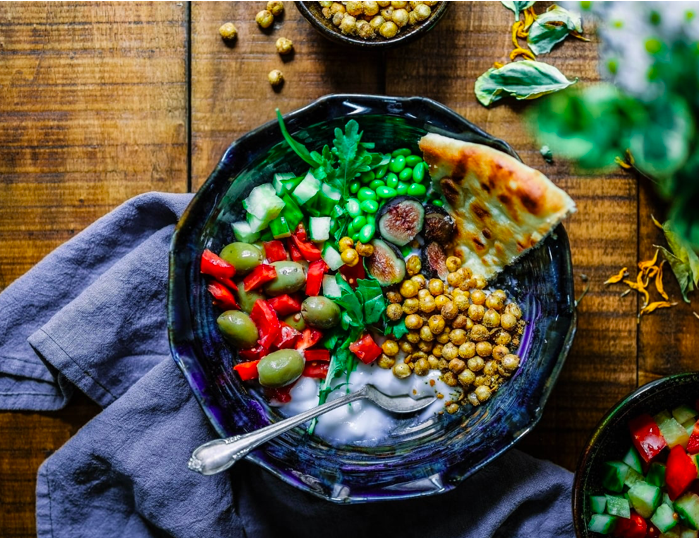WHAT TO EXPECT ON YOUR PLATE ON SAFARI
The best of safari dishes
Monday, 31.Oct 2022
It is no secret that food is an important part of any Safari experience. One would typically wonder about the itinerary, the accommodation, the different activities on offer and of course, the food. Most safari lodges are located far from suppliers, which is why it’s so important to tell your Safari Expert about any dietary preferences well in advance of your arrival. I’ve never met a Safari chef who doesn’t pride himself on serving excellent food, whatever the dietary restrictions, but every dish served in a flung location comes from a chef who had enough notice to order in the right ingredients.
While African Safari are especially famed for its once in a lifetime game experiences, untamed wilderness, and mind-blowing resident wildlife, it doesn’t mean the food is any less delectable. If you are thinking what kind of meals you will be served during your safari, we would say, this is one exciting aspect of bush adventure, you should look forward to, even if you are the only guest on the endless wild landscapes of the savannah you will be surprised with what’s coming up.
Depending on the type of Safari you opt for, you’ll either be waited on hand and foot, or expected to prepare the meals yourself or in turns for your fellow camper. Both types of meal experience have their place and drawcards. Eating under the magnificent African star- strewn sky, next to a roaring fire, after a special day, and all who have been on an African Safari will attest to it.
HERE ARE THE USUAL FOOD SELECTIONS IN A SAFARI
Breakfast or brunch: you expect anything from omelets to quiches with a variety of salads. Continental breakfast is also typically served with toast, sausage, pastries, charcuterie, cold meat, coffee, and tea. Cereals, fruits, eggs, and cheese are also very common.
Lunch: more often than not, lunches are served picnic style in the middle of your game drive. Sometimes, guide also take you back to the lodge or camps for a hearty meal before going on an afternoon or sundowner game drive. Food is usually composed of sandwiches and fruits.
High tea: before setting off to your late afternoon game drive, you will be provided for an afternoon snacks or bites, as it is usually called in East Africa – freshly roasted peanuts or cashews, cakes, sandwiches, biscuits, quiches, and tarts are the usuals.
Sundowners: On your final game drive of the day, you will be enjoying some cocktails, wine, and beers with snacks such as nuts, dried fruits, and savories as you watch the sunset across the wildlife-ridden fields.
Dinner: Prepared at the lodge or cam, dinner is usually served in three courses: soup mains, and pudding. Butternut soup, vegetable curry, and fruit pudding is a very common combo, but of course, there will be a variety during your stay ranging from meat, fish, and pasta dishes served with assorted vegetable and sauces.
Desserts: there are numbers of desserts enjoyed by locals and visitors on Safari, and the traditional dessert is endless. There’s Milk Tart which is a cinnamon custard biscuit encrusted tart, Malva pudding which is a syrup soaked sponge cake, koeksisters which are doughty fried stripes twisted together and soaked in syrup; and there are plenty of dishes created with condensed milk, the list is endless, and so is the sugar high.
The standard of meals served will vary from lodge to camp and camp to comp. but overall, Tanzania are foodies and have high standards when it comes to food. The quality of beef, game and other meat is unsurpassed and there’s always a careful focus on using homegrown produce in meals. Being such a diverse nation with a rich cultural heritage means that there are plenty of flavors, experimenting with elements and crossing over of various cultural eating traditions. Chef here love to combine the traditional with modern lair.
Tanzania Cuisine is both unique and incredibly varied with long strong Indian influence permeating many of the dishes. Along the coast and throughout the Zanzibar archipelago spicy foods are common with coconut being a leading ingredient, region of Tanzanian food includes: Wali (rice), Ugali (maize porridge), Chapatti (a kind of Tortilla), Nyama choma (grilled meat), Mishikaki (Marrinated beef), Samaki (Fish) pilau briyani and ndizi-nyama. Vegetable commonly used in Tanzania include: Bamia (okra), Spinach, green peas, beans, and cassava leaves. Tanzania produces at least 17 different types of bananas, which used for soap, stews and chips.
Most of Safari lodges cater to dietary requirements, so worry not, weather you have intolerance, gluten-free, vegetarian, allergies or follow a special diet! However it is always advisable to let the camps or lodge know any of This Dietary Requirements at the time of booking so they can prepare for this,
If you are lucky enough, then you might also get a chance to dine under star-filled sky out in the bush in a truly romantic setting, with a delicious menu full of gourmet fine dinning dishes to choose from, paired with some finest wine or champagne.
What Is a Typical menu On Lodges
When you’re staying at a lodge, for instance, or in a luxury tented camp, you will most likely have your own cook who will prepare your meals. Not only will they be able to ensure that your meals are safe and prepare according to high standard of quality; in most cases they’ll also be able to cater to any dietary needs or restrictions that you many have.



